Color Me Organized: 10 Ways Colored Bookshelves Can Transform Your Family-Friendly Home
Table of Contents
- Why Colored Bookshelves Are Perfect for Families
- 5 Benefits of Colored Bookshelves in a Family Space
- Design Tips: How to Style Colored Bookshelves for Kids and Adults Alike
- Buyer’s Guide: Choosing the Right Colored Bookshelf for Your Home
- Color Psychology 101: What Shelf Hue Says About Your Home Vibe
- DIY Ideas: Customizing Your Own Colored Bookshelf (Even If You’re Not Crafty)
- Frequently Asked Questions
- Conclusion
Why Colored Bookshelves Are Perfect for Families
If your living room looks more like a tornado hit a toy store, it might be time to rethink your storage strategy. Enter the unsung hero of family-friendly decor: the colored bookshelf.
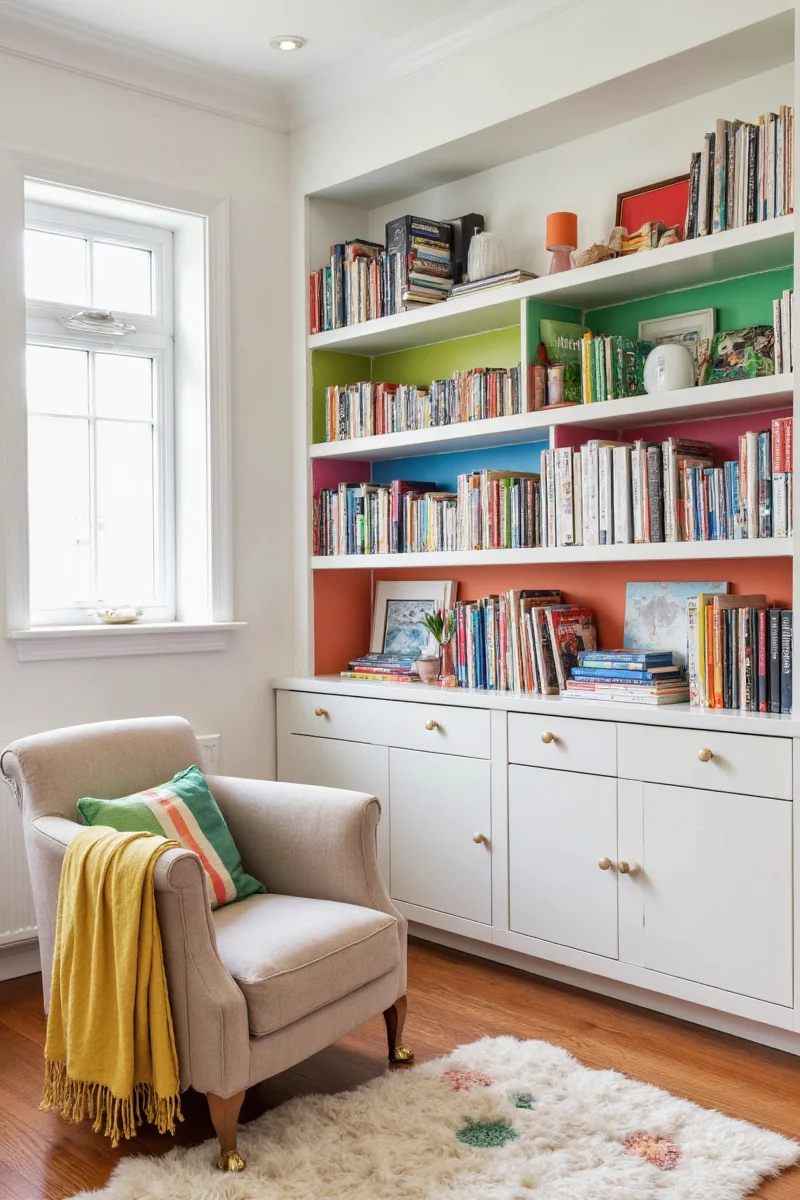
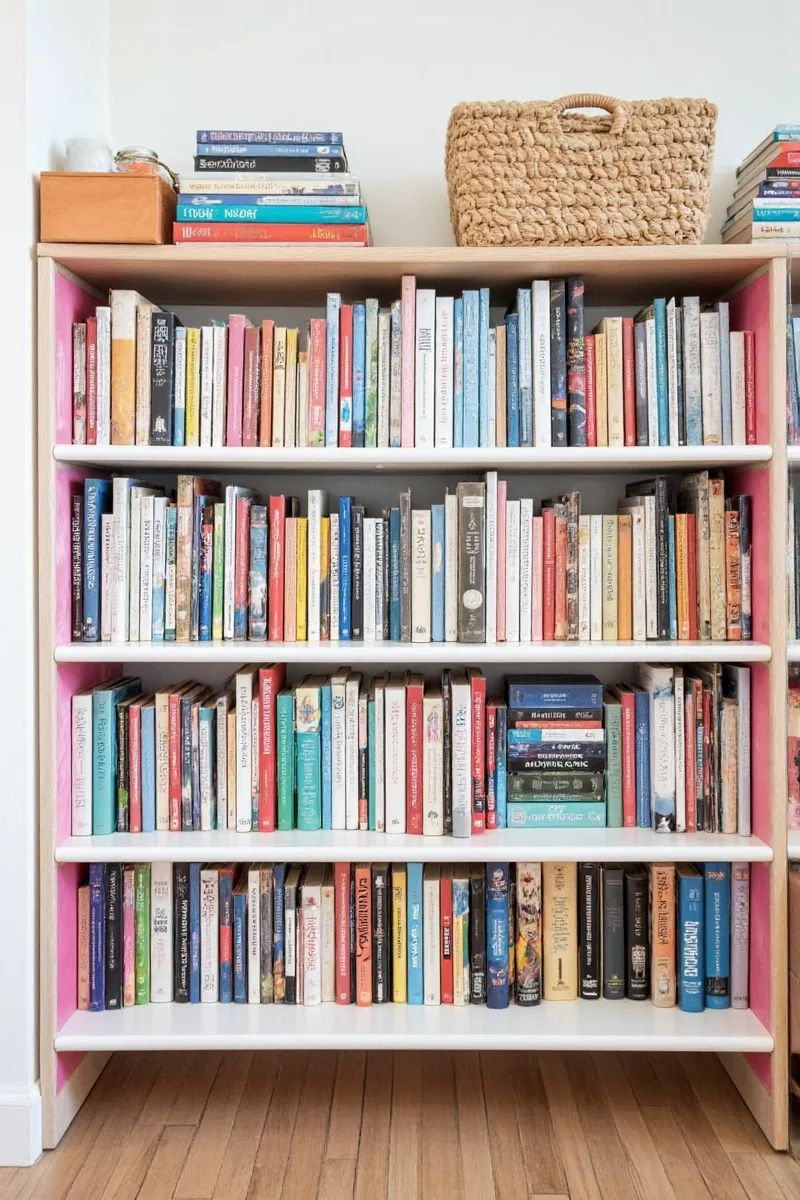
Unlike those boring beige towers of yore, today’s colored bookshelves are vibrant, versatile, and—dare I say—fun. They’re perfect for organizing books, toys, and even that mysterious collection of mismatched Legos.
5 Benefits of Colored Bookshelves in a Family Space
- Vibrant Visual Appeal: Bright shelves add life to otherwise neutral rooms.
- Kid-Friendly Organization: Easy-to-reach colors help little ones identify where things belong.
- Mood Boosting: Colors affect emotions—more on this later!
- Durability & Practicality: Many models are made with families in mind—scratch-resistant, wipeable, and sturdy.
- Stylish Storage: No more clutter hidden behind closed doors. Show off your stuff in style!
| Traditional Bookshelves | Colored Bookshelves |
|---|---|
| Neutral tones | Bold, customizable colors |
| Minimal personality | Adds character and charm |
| Limited appeal for kids | Encourages interaction and play |
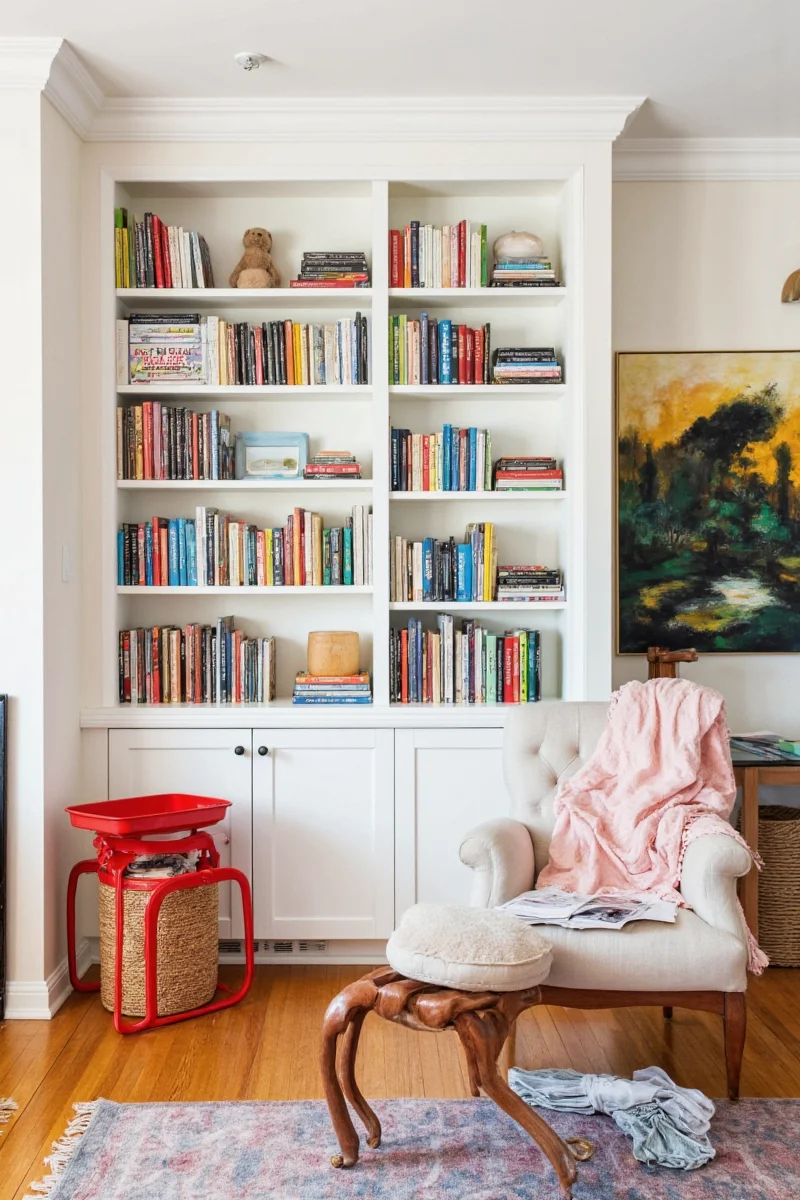
Design Tips: How to Style Colored Bookshelves for Kids and Adults Alike
Think you can’t have both whimsy and elegance? Think again! Here are some genius ways to make your colored bookshelf work for all ages:
- Zone It Out: Use different shelves for different purposes—one for kid’s books, one for cookbooks, and another for art pieces.
- Go Monochrome: Choose one color but vary textures and materials for depth.
- Mix Metals & Wood: Pair bold-colored wood shelves with sleek metallic brackets for a modern twist.
- Personalize It: Add name tags or labels with cute fonts for each family member’s favorite section.
- Rotate Seasonally: Swap out items to reflect holidays, birthdays, or themed learning topics.
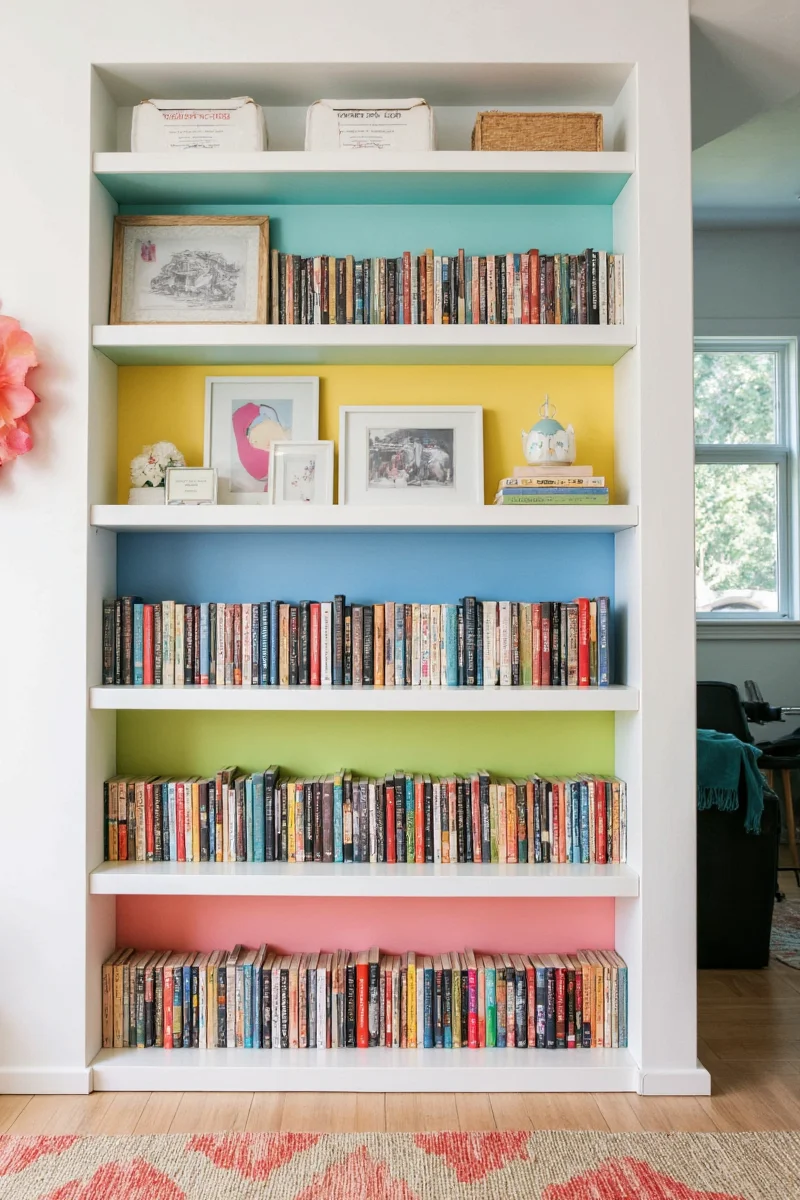
Buyer’s Guide: Choosing the Right Colored Bookshelf for Your Home
Ready to take the plunge into colorful shelving? Here’s your go-to checklist for finding the perfect fit:
Material Matters
- Wooden Shelves: Sturdy and long-lasting. Ideal for large collections and high-use areas.
- MDF (Medium-Density Fiberboard): Budget-friendly and often pre-finished in fun colors.
- Plastic or Resin: Great for kids’ rooms. Lightweight, waterproof, and easy to clean.
Size & Scale
Measure twice, buy once! Don’t let your new bookshelf swallow up the room—or worse, look like a postage stamp against the wall.
Safety First
- Anchoring kits for wall mounting
- No sharp corners for little ones
- Non-toxic finishes if pets or toddlers will lick it
Top Picks for Family-Friendly Colored Bookshelves
| Product Name | Features | Pros | Cons | Best For |
|---|---|---|---|---|
| Sklum Rainbow Step Ladder Shelf | 7-tier pastel-colored shelf, step-ladder design | Eco-friendly MDF, lightweight, portable | Not ideal for heavy books | Toddlers & preschoolers |
| Ikea Hemnes Tall Bookcase (Custom Painted) | Classic wooden frame, DIY paint job | Sturdy, customizable, classic design | Requires assembly and painting | Family living rooms, readers |
| Honey-Can-Do Stack & Store ColorBlock Cubes | Modular, stackable cubes in bold hues | Flexible arrangement, easy to move | Less stable when stacked too high | Teen bedrooms, playrooms |
Color Psychology 101: What Shelf Hue Says About Your Home Vibe
Ever wonder why blue makes us calm and yellow gives us a boost? Turns out, color choices aren’t just about aesthetics—they can shape behavior and mood. Here’s a quick cheat sheet:
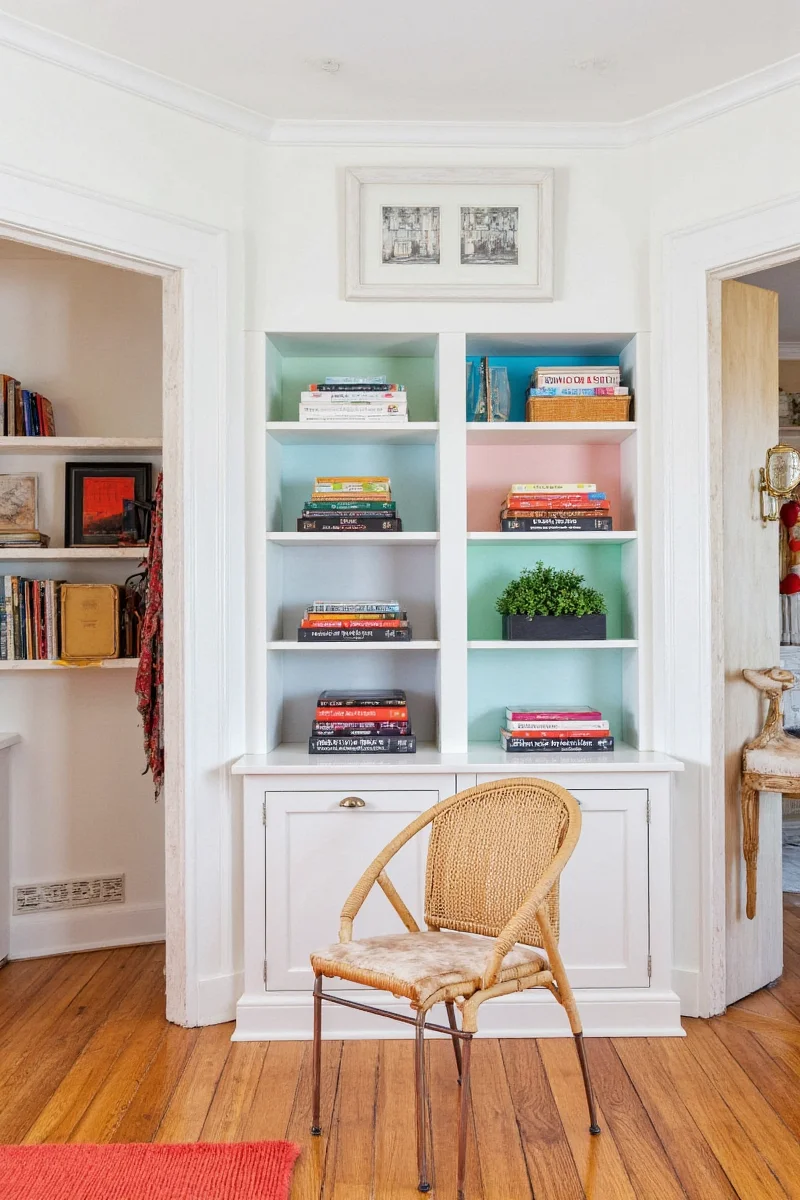
| Color | Effect | Best Room |
|---|---|---|
| Blue | Calmness, focus | Study, home office, reading nook |
| Yellow | Joy, creativity | Kitchen, dining area, kids' room |
| Green | Nature, balance | Living room, entryway |
| Pink | Comfort, romance | Playroom, girl's bedroom |
| Red | Energy, stimulation | Dining room, game room |
DIY Ideas: Customizing Your Own Colored Bookshelf (Even If You’re Not Crafty)
You don’t need Pinterest-level skills to get a personalized touch. Here’s how to DIY like a pro without losing your sanity:
- Chalkboard Labels: Paint a small section of each shelf with chalkboard paint. Let the kids label their own sections!
- Contact Paper Accents: Use patterned contact paper on the back panels for an instant facelift.
- Painted Edges: Keep the main structure white but paint only the edges for a subtle pop.
- Add Lights: String LED lights around shelves for nighttime ambiance.
- Decals & Stickers: Removable vinyl decals can turn a plain shelf into a jungle or galaxy theme!
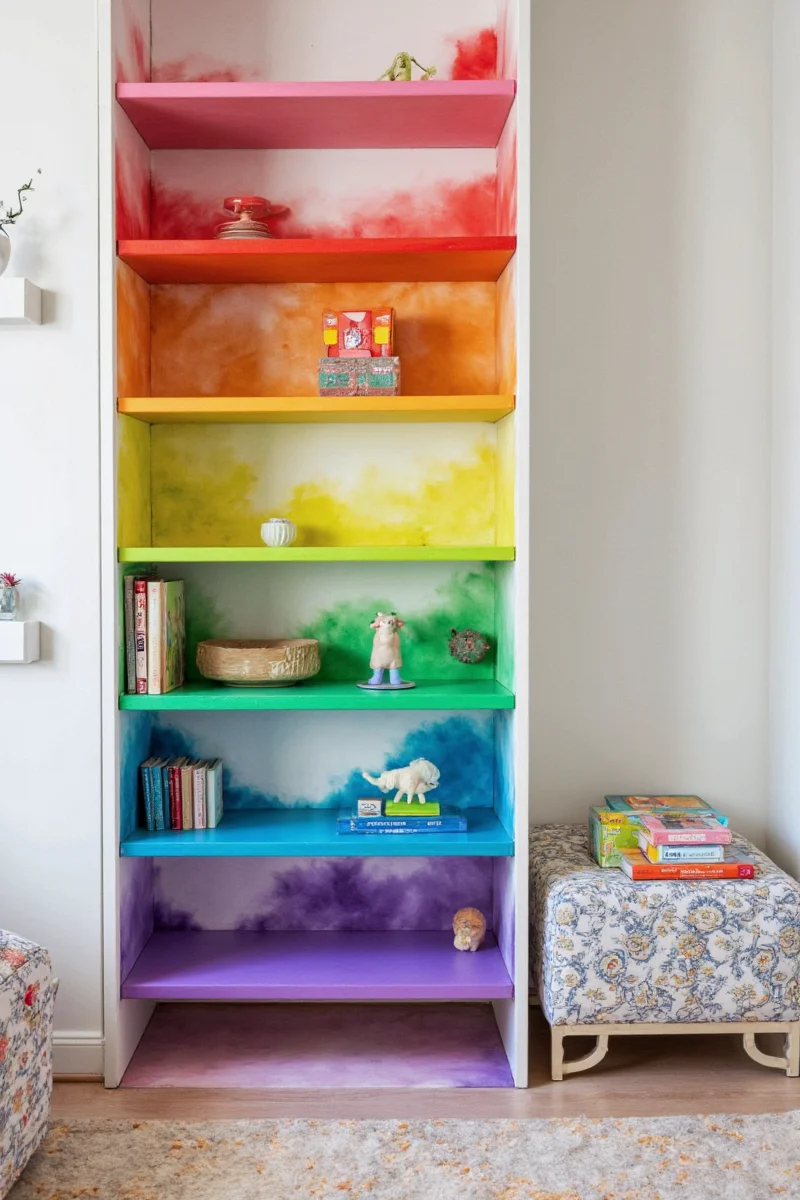
Frequently Asked Questions
Can colored bookshelves go in any room?
Absolutely! While they’re great in kids’ rooms, don’t be afraid to bring them into adult spaces. A deep emerald green or burnt orange shelf can add drama and warmth to a den or library.
How do I keep my shelves looking fresh over time?
Dust regularly and rotate displays every few months. Consider using washable finishes or protective sprays for extra durability.
Are there seasonal color trends?
Yes! Think soft pastels for spring, bright neons for summer, earthy tones for fall, and jewel tones for winter. Change your shelf palette with the seasons for a mini-decor refresh!
Conclusion
Colored bookshelves are more than just furniture—they’re a design statement, a functional tool, and a playful element rolled into one. Whether you're organizing picture books or displaying vintage vinyl, there’s a color palette that fits your family’s personality.
So next time you see that pile of scattered toys or mismatched board games, remember: a splash of color could be the solution you never knew you needed.
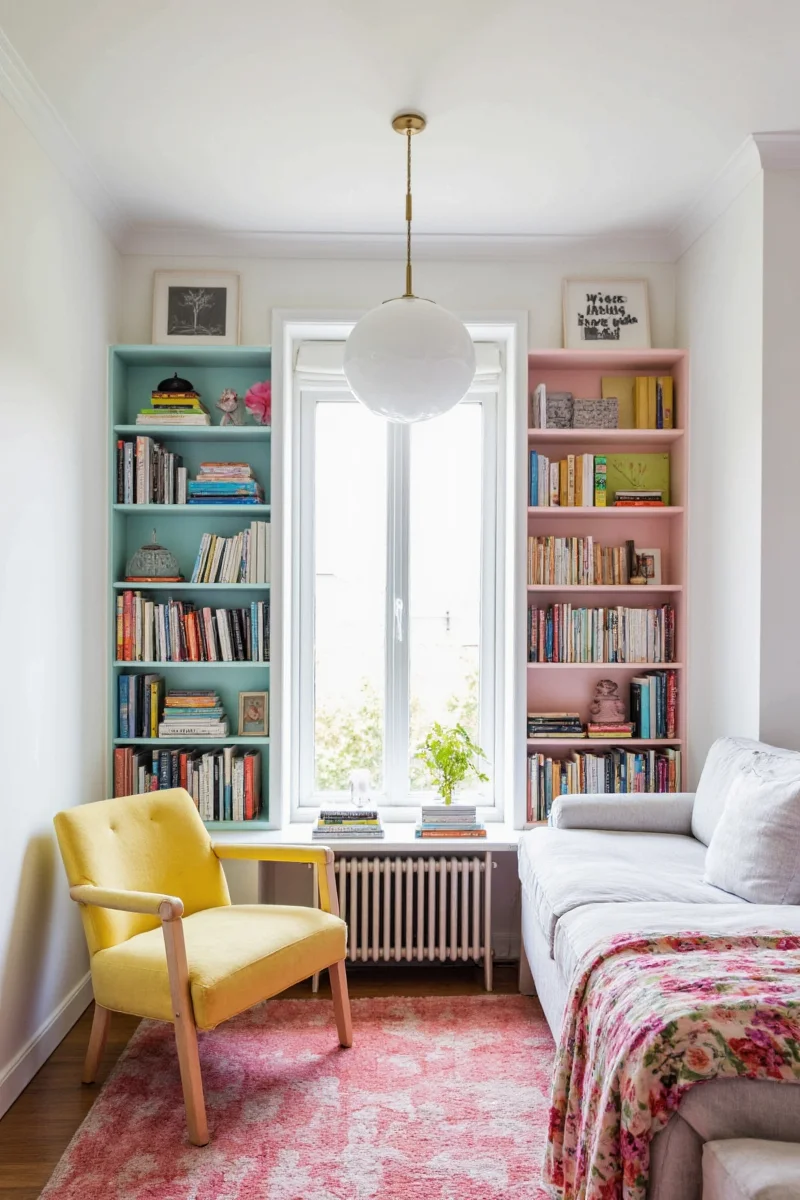

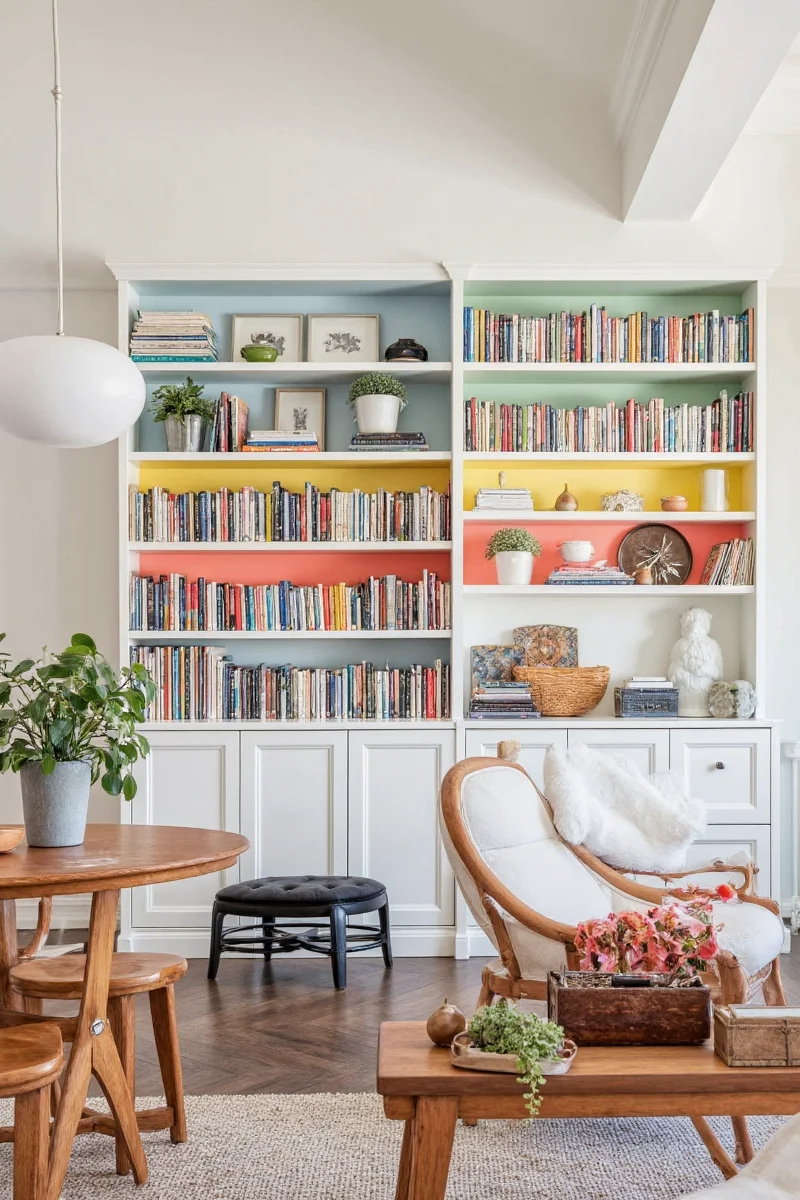









 浙公网安备
33010002000092号
浙公网安备
33010002000092号 浙B2-20120091-4
浙B2-20120091-4